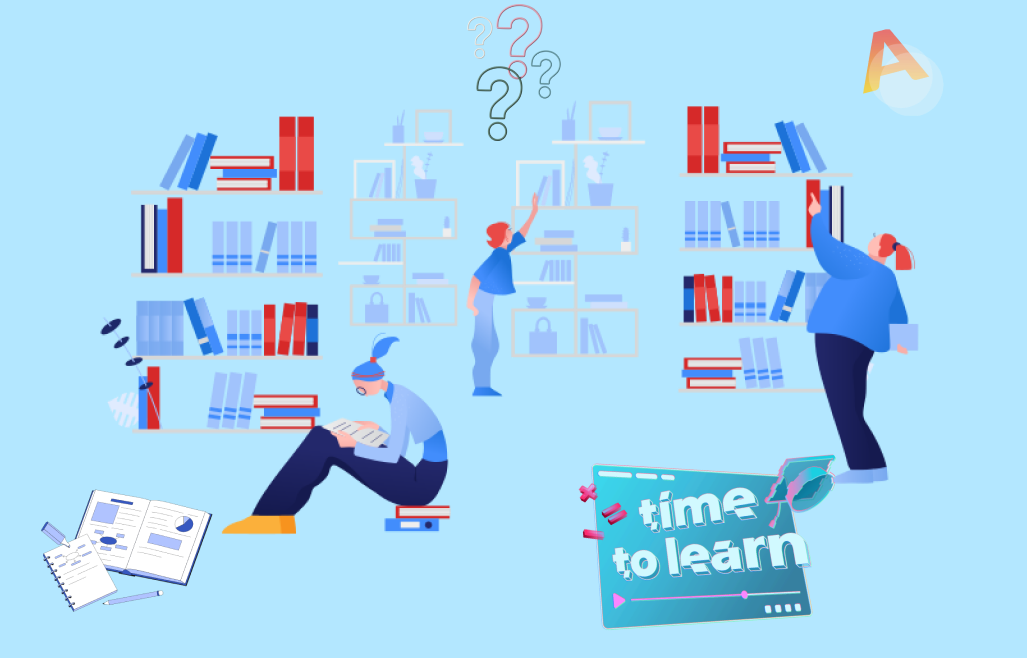Understanding the Brain Drain: Why Staying Focused is a Challenge
Learners are facing the issue of brain drain in this rapidly advancing world. One of the areas where the impact is felt the most is the prolonged mental effort, which leads to decreased productivity. The constant flow of information not only impacts the attention span of the learners but also makes it difficult for them to stay focused.
These focus issues stem from multiple challenges, including multitasking and mental fatigue. These issues hinder effective learning and eventually impact overall productivity.
Therefore, addressing this brain drain and improving attention span are crucial to overcoming study challenges. Learners can address them by including effective strategies in their study routines and using the latest technology to enhance their focus.
That is where Audext comes in! It addresses most of the problems faced by today’s learners. The tool addresses learners’ problems with its advanced features like audio to text converter and speech to text conversion. Learners can transform their learning experiences by embracing advanced tools and maintaining focus to improve their productivity.
Harnessing the Power of Audio-to-Text Conversion
When it comes to harnessing the power of the latest technology, audio to text conversion has emerged as a powerful tool that busy learners can use. The technology converts spoken words into text. Consequently, it offers a seamless way to capture lectures, meetings, and personal notes,
One of the key benefits of audio to text converters like Audext is the tool’s ability to improve note-taking efficiency. Students no longer need to scramble to write down every detail. Instead, they can focus on listening, understanding, and learning.
In today’s fast-paced learning environment, speech to text technology has become very useful. The technology lets students convert their spoken ideas into text easily and makes it easier for them to organize ideas and complete assignments. It also helps reduce the physical strain of typing or writing for long periods (a common concern for many learners).
However, that is not what the voice to text solutions offer. Besides helping with note-taking, they also are valuable in transcribing interviews, podcasts, and other audio content. This makes information more accessible. For example, using a speech to text converter can help students turn their recorded lectures or discussions into text, making sure they do not lose any information.
Even more, audio transcription has changed the lives of those who prefer listening to content over reading. By allowing for the easy conversion of audio files into text, the technology has enabled students to review and study learning material at their own pace.
Learners can leverage audio to text technology and significantly improve their productivity and performance. Besides simplifying the organization of information, it makes studying less stressful and more effective.
5 Proven Strategies to Develop Effective Study Habits
For academic success and improving efficiency, developing effective study habits can play a crucial role. Here are five strategies that can help student improve their study habits:
1. Prioritize Time Management
Effective time management is the key to productive study habits. Begin by creating a study schedule with specific time slots for different subjects. That will help balance study sessions and prevent last-minute cramming.
Also, use productivity tips like the Pomodoro Technique, which involves studying for 25 minutes and then taking a five-minute break. This will help students maintain focus and avoid burnout.

2. Engage in Active Learning
The second tip for developing effective study habits is to learn how to actively engage with the study material. Remember, active learning means active engagement with the learning material. Use approaches like summarizing information in your own words, asking questions, and teaching what you have learned to someone else. This will help reinforce what you have learned. Including active learning strategies in your study routine can make the process more engaging and help you retain the information easily.
3. Utilize Effective Study Techniques
Next on our list of strategies is to experiment with different study techniques. This will help you find one that works best for you. Use methods like spaced repetition, flashcards, and mind mapping to improve memory retention and comprehension. These approaches will help strengthen long-term memory and visualize relationships between concepts. Ultimately, this will make processing information easier for learners.
4. Create a Productive Study Environment
If there is one thing that plays as much of a role as a learner’s ability, it is the study environment. Take your time when it comes to choosing a quiet place. Make sure it is free from distractions. Once you have found a place, organize your study materials and keep your study table clean. Using noise-canceling headphones or background music (which may not be the right choice for everyone) can help minimize distractions and improve focus.
5. Incorporate Regular Breaks and Self-Care
Last but not least! Balance your study sessions with regular breaks. This is very important for maintaining productivity. Taking short breaks during your study sessions can help refresh your mind and prevent fatigue. In addition, you can practice self-care by getting enough sleep and eating healthy. Remember, a well-rested body and mind can easily absorb and retain information.
Learners can improve their learning experiences by using multiple effective strategies. At the end of the day, it all comes down to time management, engaging in active learning, using effective study approaches, and creating an environment conducive to learning.
Leveraging Technology: Apps and Tools to Boost Your Studying
Leveraging technology has become a key element of an enhanced learning experience in today’s age. There are various apps and learning tools that can help learners improve productivity and make learning an enjoyable experience.
Productivity apps make it to the top of the list. These apps help learners manage their time effectively and keep track of their study schedules. For example, apps like Trello let students organize tasks, set deadlines and monitor their progress. Using these tools can help students ensure that they are on top of their assignments and study sessions.
Next is note-taking software. These are essential study aids. They provide a platform to organize your notes. Furthermore, they let you create, store, and search for your notes easily, making it simple to review and revise.
Learning tools like Quizlet and Anki have also been developed to improve active learning. These apps use flashcards and spaced repetition techniques to help learners memorize information in a much more effective way. Learners can regularly review the material through these apps and reinforce their understanding and retention of key concepts.
Other study apps also include specialized tools for different subjects. For instance, Duolingo helps students with language learning, while Khan Academy offers resources on a range of academic topics. These apps offer interactive learning experiences to support learning.
Learners can incorporate these study aids into their routines and transform their study habits. Using these productivity apps can help improve efficiency, organization, and overall academic performance. Bringing this latest technology to good use helps ensure that learners achieve their educational goals.

Maintaining Motivation: Overcoming Burnout and Staying Engaged
When it comes to academic success, the key is to maintain study motivation. However, that can be a little challenging. Here are some tips to stay focused and avoid burnout:
First of all, take regular study breaks. Taking short, frequent breaks can help prevent mental fatigue and can keep you focused. Using techniques like the Pomodoro Technique can help you maintain focus and prevent burnout.
Learners can also benefit greatly from incorporating productivity hacks into their routines to stay focused. Begin by setting defined, achievable goals for each study session. You will feel a sense of accomplishment and will be motivated to stay on track. You can also use productivity apps to organize your tasks and watch your progress.
Another key strategy is to mix your study methods. Engaging in and trying different approaches can make studying more interactive, engaging, and less monotonous. This approach can also help you stay focused and retain information better.
Lastly, prioritize self-care. Make sure that you get enough sleep, eat healthy, and engage in physical activities. Remember, a healthy lifestyle supports your mental well-being and improves your ability to focus and stay motivated.
Conclusion: Unlock Your Full Potential and Conquer the Brain Drain
The right strategies and tools can help learners unlock their true potential and conquer the brain drain. Effective study habits are the cornerstone of academic success. Prioritizing time management, engaging in active learning, and using effective study approaches can help learners improve their performance and productivity. Moreover, incorporating technology like study apps, learning tools, and note-taking software can make learning easy, organized, and effective.
Maintaining study motivation is essential to avoid burnout and stay focused. Learners can achieve this by taking regular breaks, using productivity hacks, using different study methods, and practicing self-care. Leveraging the power of tools like Audext with features like audio to text converter and speech to text converter can greatly benefit learners. Audext also has YouTube to text conversion features, which can transcribe video to text, making learning easy.
Students can implement these strategies and use these advanced tools to overcome study challenges and improve attention span, ultimately improving their performance and productivity. Want to achieve academic success the smart way? Use Audext now and improve your learning efficiency!


